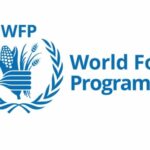The United Nations Development Programme says the conflict in the Northeast can lead to loss of 1.1 million lives of Nigerians by 2030 if the current investment deficit in development is not addressed.
This is contained in a report formally launched virtually on Thursday titled ‘Assessing the Impact of Conflict on Development in Northeast Nigeria.’
- We`ll tackle drugs abuse, trafficking on our campuses — Uni-Abuja VC
- Pregnant woman, 2 others die in Lagos-Ibadan road crash
According to the report, since 2009, the devastating conflict in north-east has directly resulted in the deaths of approximately 35,000 people as a consequence of insurgency.
“However, indirect deaths including disease and hunger resulting from the conflict’s physical and economic destruction, already far outnumber those from direct causes,” the report warns.
The report also says that critical aspects of progress and development, including Gross Domestic Product (GDP), poverty, malnutrition, infant mortality, education, water availability and sanitation, may not return to pre-conflict levels even by 2030.
“Findings from the report show that for each casualty caused directly by insurgency, an additional nine people, primarily children, have lost their lives due to lack of food and resources. As a result, more than 90 percent of conflict-attributable deaths are of children under the age of five.
“The report further notes that physical and economic destruction wrought by the insurgency has dismantled already fragile health and food systems. Less than 60 percent of health facilities in Adamawa, Borno, and Yobe states are fully functional, while a quarter are either completely destroyed or non-functional.
“Attacks from insurgency have also led to massive internal displacement. More than 1.8m Nigerians are displaced in Adamawa, Borno, and Yobe states, with the vast majority (nearly 1.5m) located in Borno. In addition, 1.8m students were out of school in 2020, and without increased investment in development efforts, the average Nigerian in the north-east will have lost a full year of education by 2030,” the report said.
Speaking on the development, the UNDP Resident Representative, Mr. Mohamed Yahya, said that while the Nigerian Government has made great strides in retaking and stabilizing large areas of the region, continued investment in development from both national and international stakeholders is needed.
“Without continued investment in development as a long-term solution, the protracted conflict in north-east Nigeria will continue to impact other parts of the country and the entire Sahel region. There is a need for international partners and national stakeholders to ensure that funds are invested not only on life saving and humanitarian needs but also on mid- and long-term development priorities in order to enable Nigeria to achieve the SDGs and attain the AU 2063,” Yahya said.
The report, among others, suggest that to overcome the conflict, development efforts need to be focused on the stabilization of affected areas through a community-level approach that enhances physical security and access to justice; rehabilitation of essential infrastructure and basic service delivery as well as revitalization of the local economy like market stalls, schools and police stations.

 Join Daily Trust WhatsApp Community For Quick Access To News and Happenings Around You.
Join Daily Trust WhatsApp Community For Quick Access To News and Happenings Around You.


